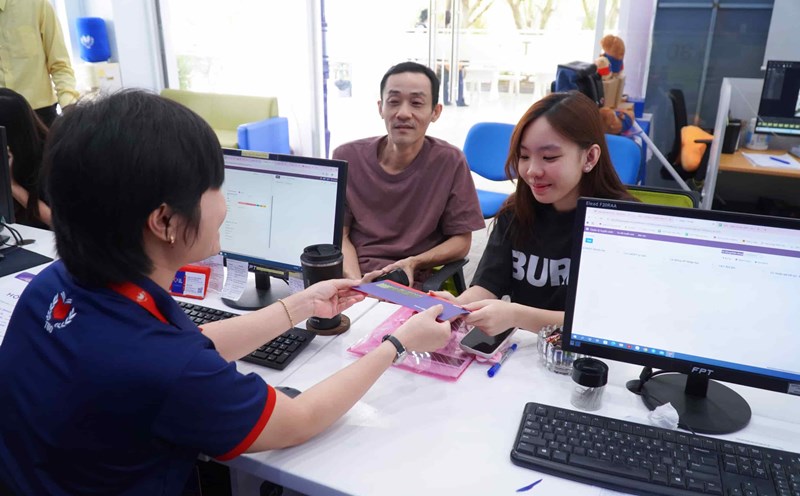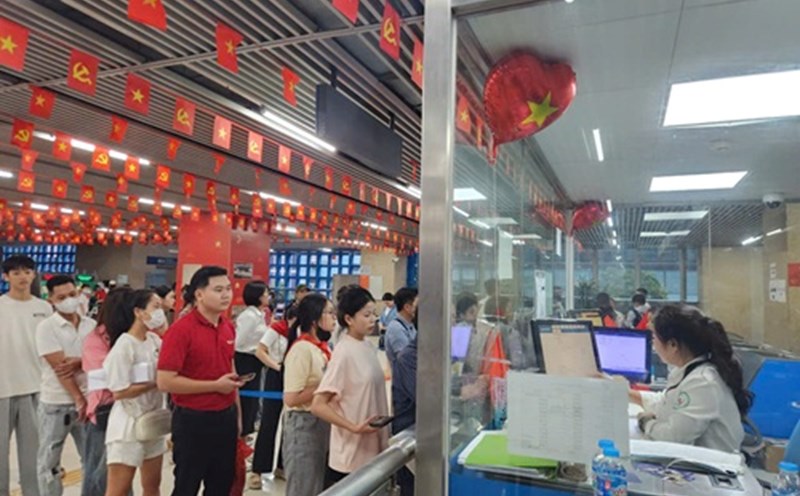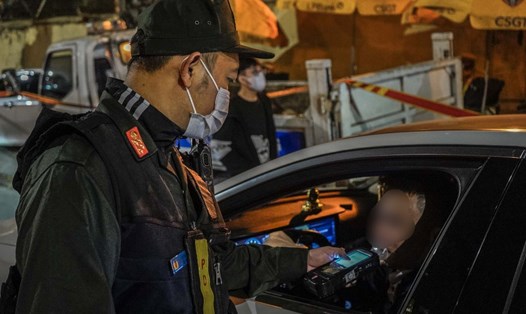Determined to make comprehensive changes
The Hanoi People's Committee issued Plan No. 149/KH-UBND dated May 28, 2025 on the implementation of the Project to develop a public transport system using buses using electricity and green energy. This is an important step, continuing to demonstrate the determination to convert public transport to clean energy, towards building a modern, civilized and environmentally friendly urban area.
According to the plan, the city will complete the replacement of all gasoline-powered buses with electric, green energy buses by 2030 at the latest. In particular, the central urban area and inner city must be completely transformed first to ensure the goal of developing green, modern and sustainable transportation.
Vice Chairman of the City People's Committee Nguyen Manh Quyen emphasized that the implementation of the project does not stop at converting vehicles but also synchronizes with many solutions on mechanisms, policies, infrastructure, science and technology and raising public awareness. The city sets a specific target: By 2025, the proportion of electric and green energy buses will reach 10%, and by 2026, it will reach 20 - 23%. From 2027 to 2029, this rate will increase rapidly, reaching 79 - 89% before being 100% completed by 2030.
Plan 149 clearly states seven groups of tasks, focusing on building and perfecting mechanisms and policies to encourage businesses to participate. The city plans to issue a Resolution of the People's Council on supporting interest on investment in vehicles and infrastructure; adjusting bidding contracts to increase attractiveness; reviewing and supplementing the system of norms and unit prices for electric and green energy buses.
Along with that is the development of infrastructure, especially the system of fast charging stations at terminals, bus stations and transit areas. The electricity industry will coordinate to ensure supply capacity, avoiding interruptions in operations. In addition, the arrangement of land reserved for parking lots and charging stations is also included in the planning.
In terms of the route network, the city prioritizes opening new or renovating electric bus routes connecting to urban railways, new urban areas, national exhibition centers, and museums. The interconnected electronic ticket system and smart transportation will be deployed, creating maximum convenience for people.
From personal habits to community consensus
Converting means of transport is not only a technical problem but also directly related to people's habits. Dr. Khuat Viet Hung - Chairman of the Board of Directors of Hanoi Metro - said: "Hanoi people have a habit of sticking with personal vehicles, especially gasoline motorbikes. Initial changes are certainly difficult, but like the previous alcohol concentration ban, over time, awareness will change, people will gradually get used to it. Accompanying people and public transport to convert to clean energy".
In fact, in recent times, many private enterprises have joined hands to convert to electric buses. Vin bus Transport Service Company Limited is operating about 300 electric buses in Hanoi, Ho Chi Minh City, Hai Phong, Phu Quoc and Nha Trang. After 3 years of operation, Vin bus has served more than 128 million passengers, contributing to reducing emissions by 53.7 thousand tons of CO2, equivalent to planting more than 2.5 million urban trees.
Not only does it greatly benefit the environment and people's health, in fact, the operating and maintenance costs of electric buses are much lower than those of diesel vehicles.
Although the benefits are clear, to speed up the expansion of electric buses, experts propose that the State soon issue technical norms for electric buses, support interest on investment in vehicles and infrastructure, and prioritize pioneering enterprises in the conversion.
Currently, Hanoi has more than 2,000 subsidized buses, but only about 277 vehicles use clean energy (accounting for 13.6%). Thus, the volume of vehicles that need to be replaced is still very large. To complete the goal by 2030, it is necessary to have the cooperation of the government, businesses and people.










